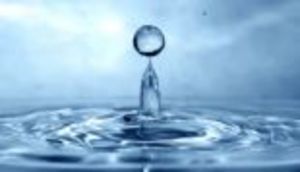I have learned to appreciate drinking water. Certainly I’d drink a lot more water if the ‘ol H20 had some flavor (check out the AC archives for an article) but in terms of overall survival and cleansing your body – yeah I drink it but should probably drink more).
But apparently not TOO much more. As like anything you indulge too much in — overdoing your water-intake can lead to some serious problems.
Don’t believe me? Check this out:
In early January of this year, a 28-year old Californian wife and mother of three children died from drinking too much water. Her body was found in her home shortly after she took part in a water-drinking contest that was sponsored by a local radio show. Entitled “Hold Your Wee for a Wii,” the contest promoters promised a free Wii video game machine to the contestant who drank the most water without urinating.
And here’s another: David Rogers — a 22-year-old London marathon runner and a fitness instructor who completed the race in less than four hours, collapsed after he crossed the finish line. He was rushed to the hospital where he died due to a lack of sodium in his body that was caused by drinking too much water. (And just a footnote: Rogers was the ninth athlete in the 27-year history of the London marathon to die. Almost 60 of this year’s more than 36,000 runners ended up needing hospital treatment)
Who’d have thought that overdoing your water intake can lead to a condition known as water intoxication and to an even more serious problem called hyponatremia which results from the dilution of sodium in the body. According to the medical website Mercola.com, water intoxication is most commonly seen in infants under the age of six months of age and sometimes in athletes. A baby can get water intoxication as a result of drinking several bottles of water a day or from drinking infant formula that has been diluted too much. Athletes on the other hand sweat heavily and in the process lose both water and electrolytes. Water intoxication and hyponatremia result when a dehydrated person — David Rogers for example — drinks too much water without the accompanying electrolytes.
This goes against the common knowledge (well, I thought it was common knowledge) that has always told me that when it comes to water “more is better.” I think about all the articles I’ve read (and quite a few I’ve written as a matter of fact) that tout the virtues of water flushing your body of impurities and toxins.
Well guess what, according to chemistry-about.com when too much water enters the body’s cells, the tissues swell with the excess fluid. Your cells maintain a specific concentration gradient, so excess water outside the cells (the serum) draws sodium from within the cells out into the serum in an attempt to re-establish the necessary concentration. As more water accumulates, the serum sodium concentration drops – creating the condition I spoke of above called hyponatremia.
What’s worse, according to the BBC News online (www.bbc-news.uk ) drinking too much water can even cause your brain to swell, stopping vital functions such as breathing, and causing death.
And here I was feeling guilty about not drinking as much water as I felt I should.
Mercola.com reports that from the cell’s point of view, water intoxication produces the same effects as would result from drowning in fresh water. In a strange sort of way, the effect of drinking too much water is very similar to the effects of drinking too much alcohol: swelling puts pressure on the brain and nerves, which can cause behaviors resembling alcohol intoxication. Swelling of brain tissues can cause seizures, coma and ultimately death unless water intake is restricted and a hypertonic saline (salt) solution is administered. If treatment is given before tissue swelling cause.
BBC News article points out that when water enters the body when we drink and is removed primarily in the urine and sweat. The amount of water in the body is regulated to control the levels of certain compounds, such as salt, in the blood.
But if you drink too much water, eventually the kidneys will not be able to work fast enough to remove sufficient amounts from the body, so the blood becomes more diluted with low salt concentrations.
When I was going through basic training many, many years ago — all recruits were required to drink two glasses of water with every meal. That meant six glasses of water a day — which I think someone explained to me came out to about a gallon of water. The difference is/was that one gallon of water wasn’t consumed all at once — so the risk for water intoxication was diluted (excuse the pun).
The medical website drbenkim.com reports that putting unnecessary burden on your cardiovascular system and your kidneys by ingesting unnecessary water is a subtle process. For the average person, it is virtually impossible to know that this burden exists, as there are usually no obvious symptoms on a moment-to-moment basis. But make no mistake about it: this burden is real and can hurt your health over the long term.
It’s important to point out that there’s a big difference between drinking the right amount of water and overdoing it. Most health experts recommend that you should literally let your “thirst” be your guide. In fact, depending on your size, your body can process slightly more than a glass of water per hour.
Mercola.com stresses that a simple guideline that is easy for everyone to follow is to look at the color of your urine. If you are not taking a multivitamin with vitamin B2 (which will falsely color your urine bright yellow) then an ideal color for your urine would be a very light yellow. The brighter and darker it is the more dehydrated you likely are.
Water: drink up….but not THAT much.
